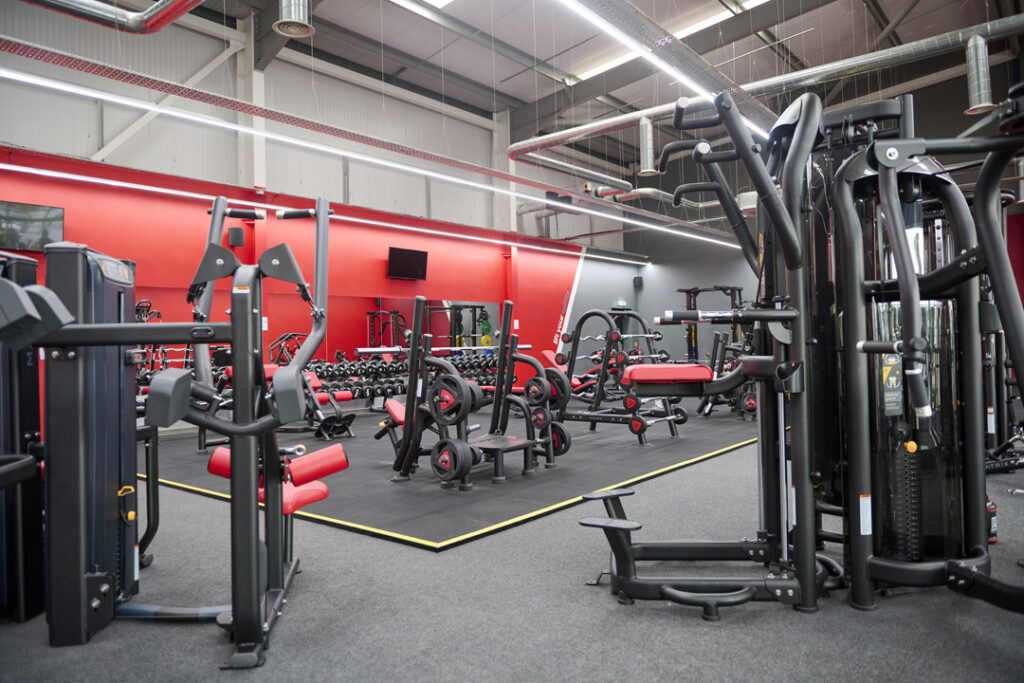Why fitness shapes up as the next big franchise investment

Identifying the most promising franchise for your investment has traditionally led people to be interested in Quick Service Restaurants (QSR) and real estate franchises. However, as the landscape continually evolves, the opportunity has arisen for investors to diversify their portfolios by exploring the benefits the fitness sector has to offer. Kristen Horler, Head of Sales at Snap Fitness, shares her insights into why fitness franchises are fast becoming one of the most popular investment choices, joining traditional favourites like QSR and real estate.
So why do prospective investors gravitate towards QSR and real estate franchises? The QSR industry attracts customers through its convenience and the familiarity consumers have with that brand. For real estate, there is a constant demand; there will always be a market for people wanting to buy, sell or rent properties. Yet, despite the traditional allure of these sectors, fitness franchises are fast becoming a regular member of those franchise investment portfolios and for some, the first choice for new investments.
Tackling business challenges with franchising
While QSR and real estate businesses are appealing, recent global and British economic challenges can give investors food for thought. Amongst these concerns is the work-life balance it offers to business owners. Operating in this industry can demand a significant commitment of time and effort. One contributing factor are the challenges around recruiting and high staff turnover, leading to ongoing recruitment and training expenses.
More recently, supply chain disruption has emerged as a prevalent issue. Restaurants closed at their highest rate in a decade in the first three months of 2023, at an average rate of five per day, according to July’s figures from accountancy firm Price Bailey. Since the onset of the pandemic, the sector has been hit by skyrocketing energy costs, food inflation and high interest rates, as well as the recruitment crisis. Luckily for smart investors choosing QSR franchise brands over going it alone, the franchisor helps to mitigate these challenges with expert advice, proven HR programmes and strong supplier relationships.
Entering the real estate industry presents its fair share of obstacles too. In areas where the property market is deemed to be highly sought-after, the competition can be intense. There is a good chance that competitors have already established a presence, putting new business owners at a disadvantage when it comes to brand recognition and word-of-mouth referrals. Something that a franchise brand is better equipped to address for new franchisees – with quick-start marketing campaigns and national-level brand recognition supporting customer recommendations.
For those people investing in real estate businesses incorporating more than estate and lettings agencies, such as property renovation and management, market fluctuations and the revolving landscape of mortgage and lending rates have only added to the complexity of the sector. In today’s environment, profitability is increasingly tied to longer-term outcomes, in contrast to the more immediate results of previous years. The shifting dynamic calls for continued levels of adaptability and strategic planning for any prospective investors in the sector, something the franchisor leads on for the benefit of their whole franchise network’s success.
Why fitness franchises are gaining ground
Fitness franchises are increasingly attractive to prospective business owners and investors, in part driven by the growing trend of people prioritising their health and wellbeing. Gym membership numbers are on the increase as the industry rapidly recovers from COVID as research shows member numbers in the UK are around 10 million1. Capitalising on the trend of people placing a renewed emphasis on their fitness and growing membership levels creates a large market for franchisees – health is the new wealth. By leveraging an established business model and a steady stream of income from monthly membership fees, investors can really build up their fitness franchises, achieving a return on their investments faster and at a similar rate to QSR and real estate franchises. In fact, at Snap Fitness, we’ve bucked the trend by increasing our memberships by 14% since 2022, compared with an industry average of 3.9% increase2.
Whilst there is a marked difference from QSR in the significantly reduced need for staff, whether choosing a fitness franchise that offers a staffed or un-staffed business model, recruitment is still a challenge. Yet, similarly to the strategies implemented by QSR franchises, if your fitness franchise system is prepared to invest in quality staff training, you can attract and retain loyal team members, ultimately leading franchisees to be able to delegate management tasks and have more time spare, improving their work-life balance.
And although QSR, real estate and fitness businesses all have property acquisition at the outset which comes at a premium price, it is the power of the franchise model which minimises risk for franchisees. Fitness franchises like ours are popular because we don’t leave the property search to our franchisees, we have in-house specialists to take the strain.
The final cherry on top for fitness franchises and the reason they are hot on the heels of the franchise forerunners? The fitness industry is rewarding! You can really have an impact on changing people’s lives for the better, whilst being around others exercising can mean you are inclined to be healthier too – a win-win.
Snap Fitness is gearing up to celebrate the launch of their 100th gym in the UK & Ireland in early 2024 thanks, in part, to the rising popularity of fitness franchises versus the more traditional favourites. To find out more, visit: https://www.snapfitness.com/uk/why-franchise-with-snap-fitness
1 Statista, Gym Membership Numbers UK, May 2022
2 State of the UK Fitness Industry Report, Leisure DB, 2023




